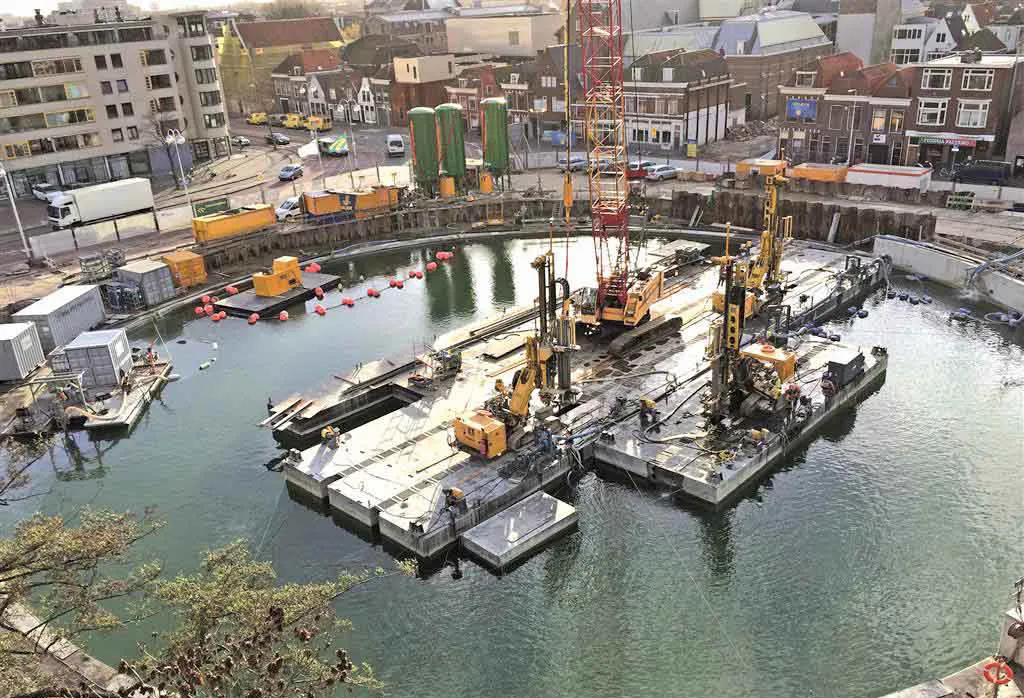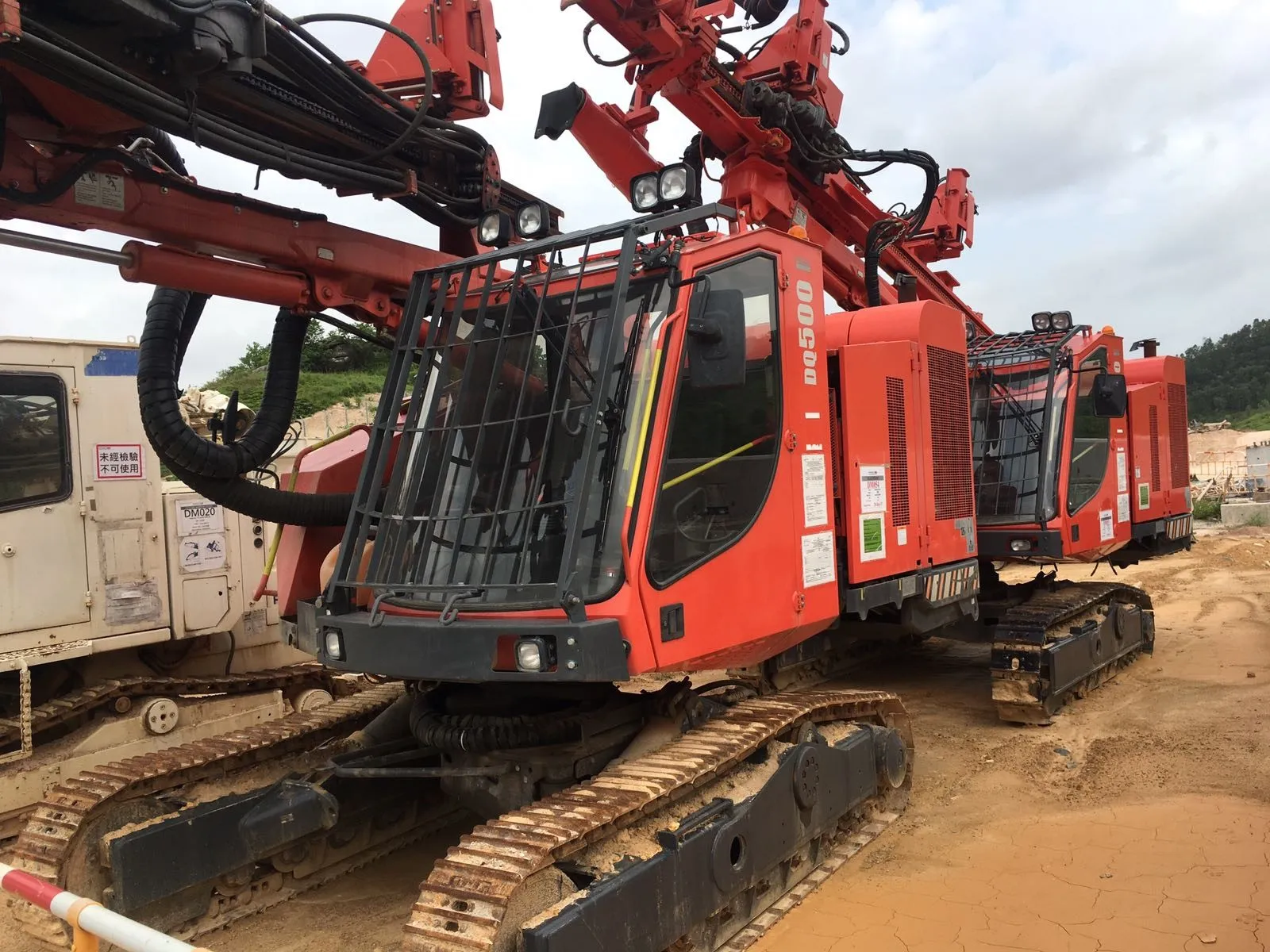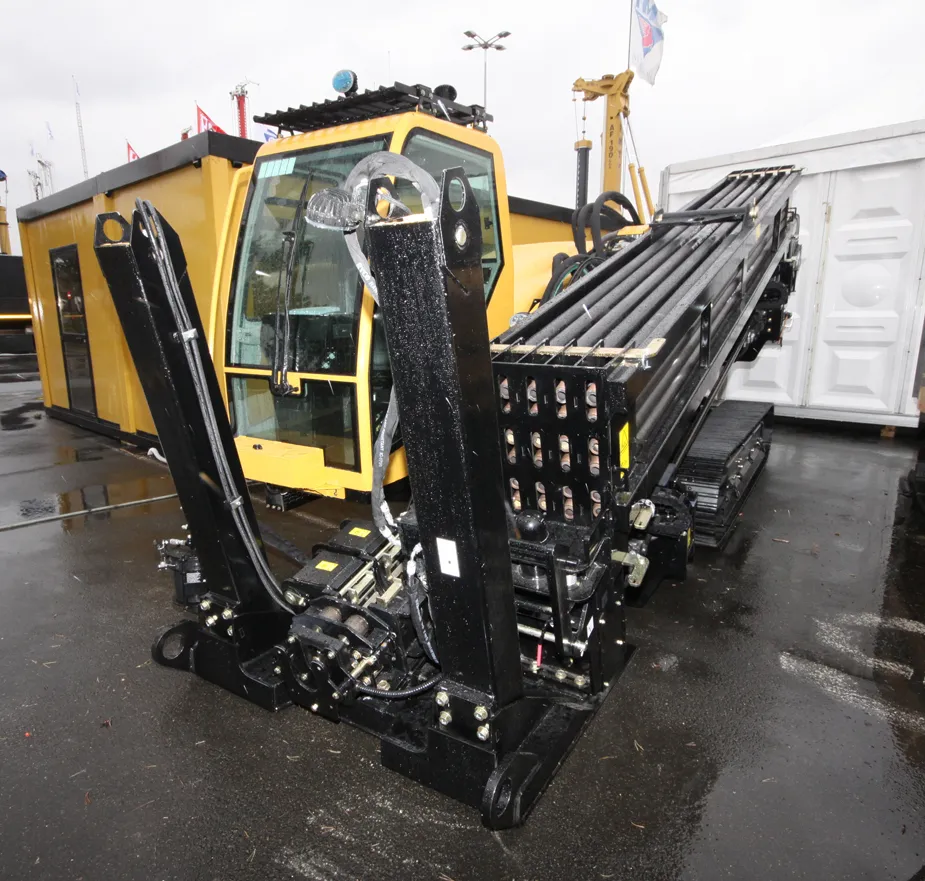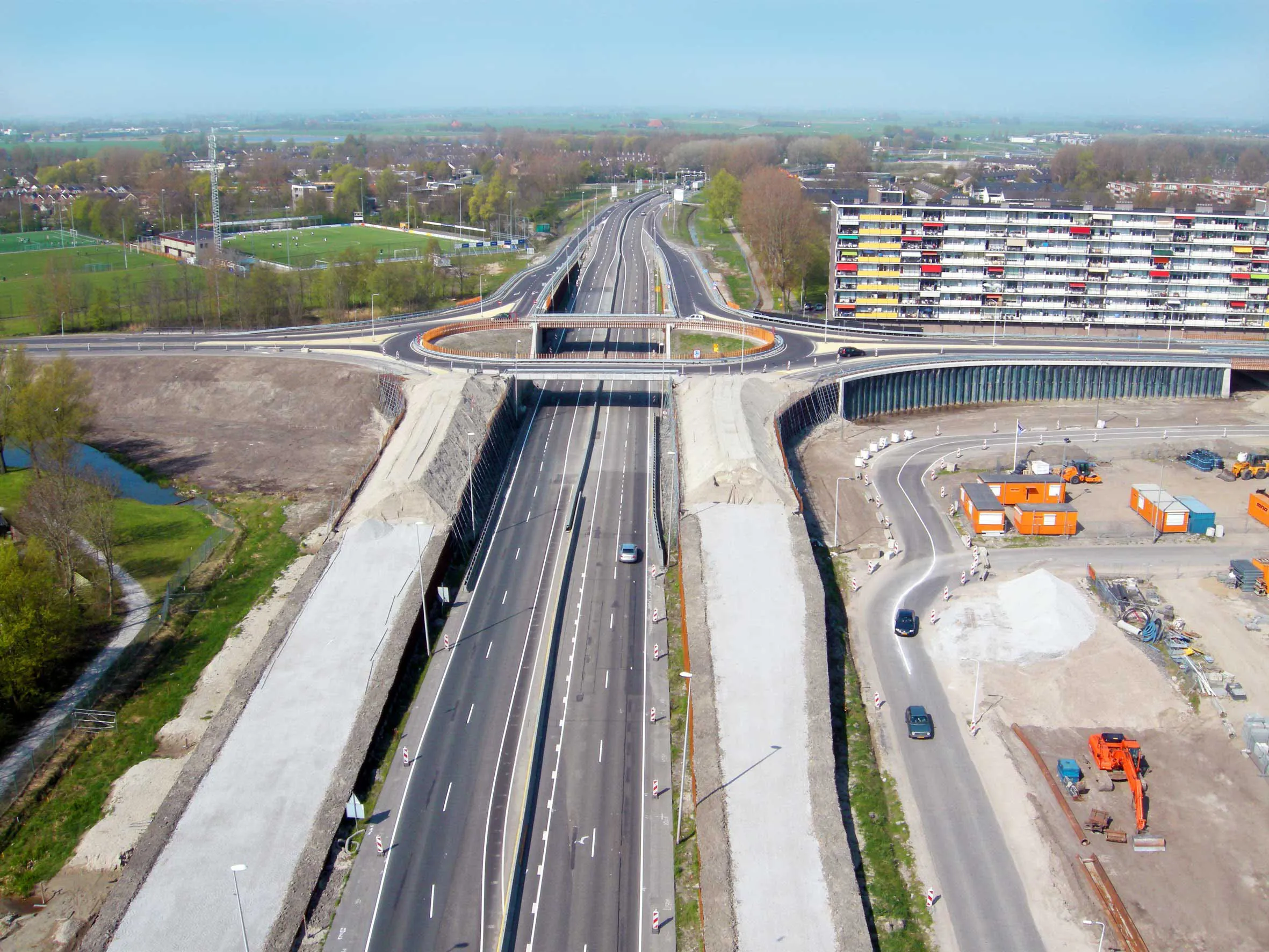BAUER Funderingstechniek has constructed an underwater concrete base for Europe's deepest parking garage in Leiden, a university city in the Dutch province of South Holland.
Leiden is known for being the birthplace of Rembrandt. The Lammermarkt is an area with a park in the city centre and is used for festivals and events. In addition, the picturesque "Molen de Valk", also known as "The Falcon" is located here. It is a stone windmill that was built in 1785 and is now one of the distinctive sights of the
July 7, 2016
Read time: 2 mins

Leiden is known for being the birthplace of Rembrandt. The Lammermarkt is an area with a park in the city centre and is used for festivals and events. In addition, the picturesque "Molen de Valk", also known as "The Falcon" is located here. It is a stone windmill that was built in 1785 and is now one of the distinctive sights of the city.
An underground parking garage is being built under the Lammermarkt. With a depth of 22m, it will be the deepest underground parking garage in the entire EU.
BAUER Funderingstechniek, the Dutch subsidiary of BAUER Spezialtiefbau and based in Mijdrecht, constructed an underwater concrete base with 585 GEWI piles. Work was done on behalf of Belgian infrastructure group
Drilling has been carried out to a depth of 55m. Three small-diameter drilling rigs on pontoons from
In addition, Bauer pumped away and de-sanded the drilling fluid under water. Work was completed last November. The underground parking garage with its 525 parking spaces will be completely finished by 2017.
The BAUER Group, with 110 subsidiaries, provides services, equipment and products dealing with ground and groundwater. It was founded in 1790 and is based in Germany’s Schrobenhausen region, Bavaria. In 2015, it employed about 10,700 people in around 70 countries and achieved total group revenues of €1.66 billion.








